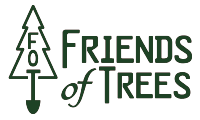Vancouver talk focuses on tree assessment

By Jesse Batty
On Tuesday, Vancouver Urban Forestry held another TreeTalk workshop, this time on ‘Hazard Tree Risk Assessment.’
Native trees here in the Pacific Northwest, like Bigleaf Maple, Douglas-fir, Western Redcedar and Oregon White Oak, among others, are designed to withstand wind.
Trees that fail and fall are those that have shown some signs of stress and are most often hazard trees. Homeowners can look for signs of stress in their trees by looking for indicators such as decayed wood, mushrooms, cracks, root problems, weak branch unions, cankers and dead limbs.
Certified arborist and Friends of Trees staffer David Odom explained that a tree is hazardous when a target exists. A target can be a road, house, bus stop, or any number of elements from the urban environment.
There has been a tendency of urban dwellers to plant small ornamental trees and “top” their tree to make it smaller.
Friends of Trees and Vancouver Urban Forestry encourage homeowners to not be afraid! Continue to plant large native trees because they increase our tree canopy, soak up much more storm water, provide more habitat for wildlife, and lower energy costs by casting more shade. Just be sure to have a certified arborist assess it for you. If you were sick, you’d have the doctor look at you, so if you think your tree may be sick have the tree doctors look at it.
For more information about Vancouver’s Urban Forestry TreeTalk workshops contact Jessica Antoine at [email protected].
Batty is the Neighborhood Outreach Coordinator for Vancouver: 360-619-1127, [email protected]
